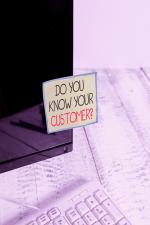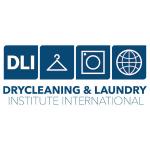CHICAGO — While marketing messages have long been aimed at the baby boomers, with each new generation comes new opportunities for connection. To take advantage of this, however, requires the mindset to understand that younger groups need their own messages. And, as Gen Z starts to come of age, it’s more important than ever to truly grasp what resonates with this group.
This was the main point made by Lorynn Divita, Ph.D., during her online workshop, “Connecting with Gen Z — The ‘Values’ Generation,” sponsored by the National Cleaners Association (NCA). Divita, an associate professor in apparel design and merchandising at Baylor University since 2002, has seen her classes shift from millennials when she began her career to Gen Z.
In Part 1 of this series, we defined who Gen Z is, and today, we’ll examine some of the ideas that are important to them.
Digitally Native Gen Z
Divita says that Gen Z holds many viewpoints that set them apart from previous generations, and that’s in large part due to being the first generation to be “digital natives.”
“Unlike myself, a digital immigrant, we have a whole generation of digital natives,” Divita says. “As a member of Generation X, I'm a digital immigrant for computers — I grew up in a time when computers were just becoming commonplace. This group is not only not digitally native to computers, they're also digitally native to mobile phones, which is huge. This means that they grew up with them in their hands.”
Another defining moment for Gen Z was the housing market recession in 2008, Divita believes, which shaped their worldview. “Some of them have a parent who was thrown out of work,” she says, “and they remember it. So it has really impacted how they relate to other generations and to each other.”
One handle that has been put on this group of young people, and Divita believes it is accurate, is that they are the “We” generation because they are more interconnected than other generations have been.
“They were raised with their mobile phones in their hands,” she says, “They skew politically progressive, and they're also unbelievably pragmatic.”
The Differences in Generations
This digital availability, Divita says, has changed how the younger generation views very basic things like connecting with others both physically around them and in society.
“Gen Z is very connected and their ideas of connections are very different from mine,” she says. “If they’ve never met someone, but say ‘Oh, I follow them,’ that sort of counts as a relationship to them.”
Other areas that might have held more of a stigma to older generations are also more accepted by Gen Z.
“They're very open about their mental health, for instance — both the medications they take and the therapy they receive,” Divita says. “They've accepted the self-care that they need, and they're open about it.”
This generation is also more gender and sexually fluid than prior generations, she says, pointing to a study recently released by Statista Consumer Insights.
“A full 23% of Gen Z considers themselves to be part of the LGBTQ-plus community,” she says. In that same poll, that number falls to 11% when all generation groups are combined. “That’s a huge jump relative to all respondents.”
Other areas where Gen Z differs from their elders are that they tend to be more politically active and engaged and are less likely to smoke and drink alcohol.
What Drives Gen Z — and What Doesn’t
“Obviously, there are always outliers,” Divita says. “We don't want to paint with too broad of a brush.” To believe Gen Z will react the same way to marketing and outreach as other generations, however, is to risk the connection you want to make.
Divita says that Gen Z is more concerned with values (moral principles or standards of behavior) than with attitudes (judgments, standpoints or opinions about a certain subject or person).
“There's a pretty pronounced difference between a value and an attitude,” Divita says, “although I think we conflate the two. If we are able to clearly define a value versus an attitude, you will know how you can appeal to values without alienating a portion of your audience.”
Come back Thursday for the conclusion of this series, where we’ll dive into the key values of Gen Z and how dry cleaners can tap into these to build business for the next generation. For Part 1 of this series, click HERE.
Have a question or comment? E-mail our editor Dave Davis at [email protected].















































































































